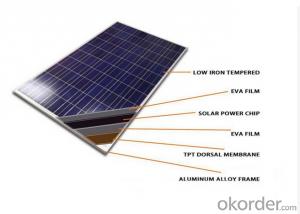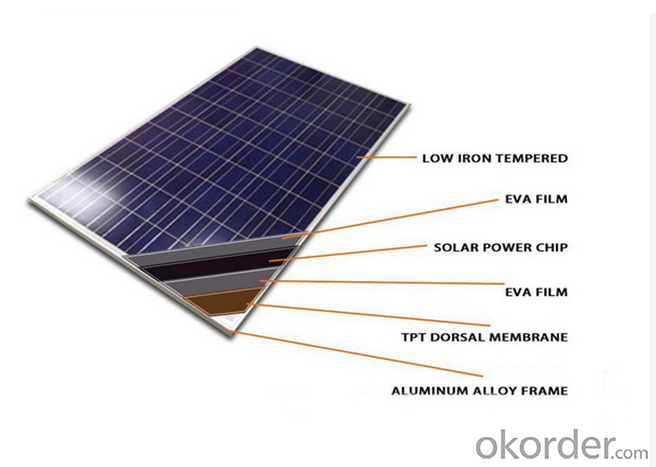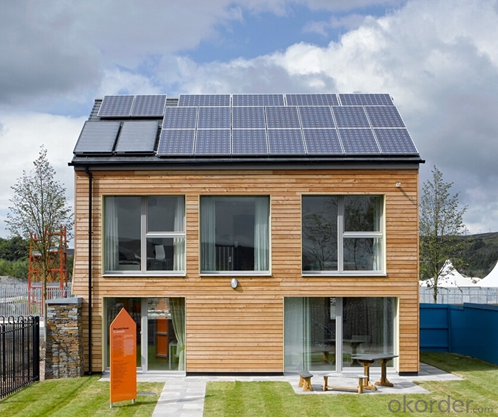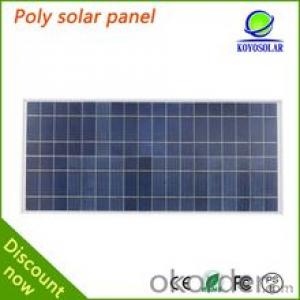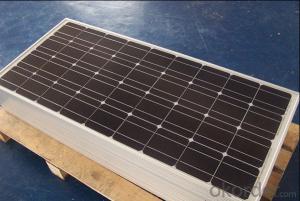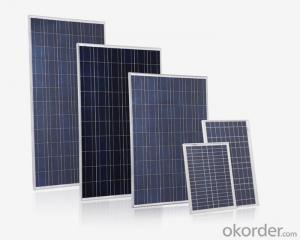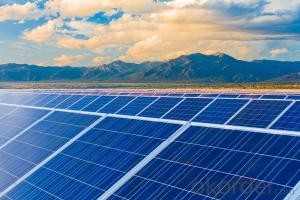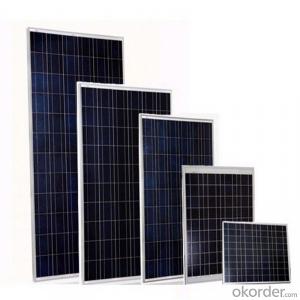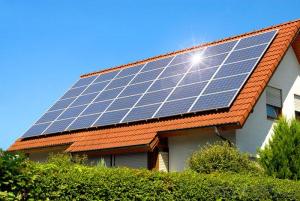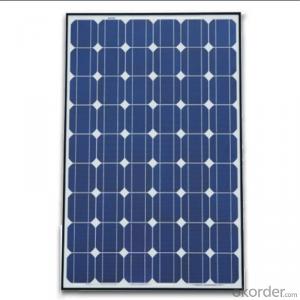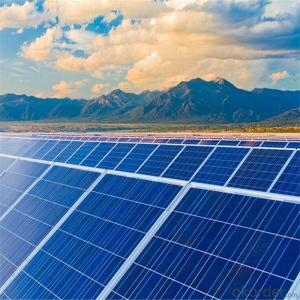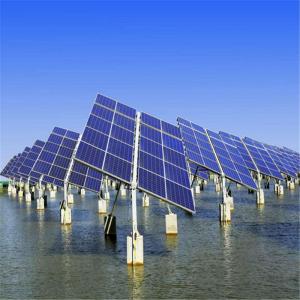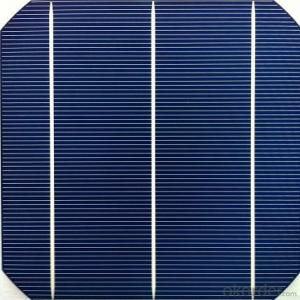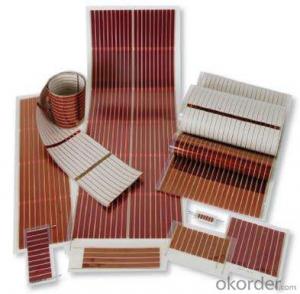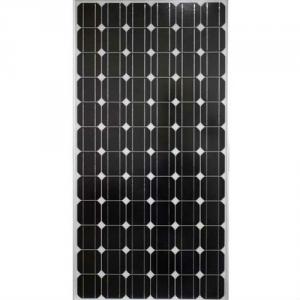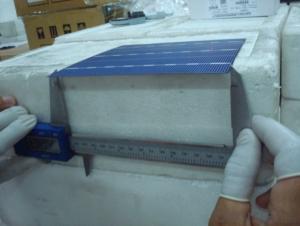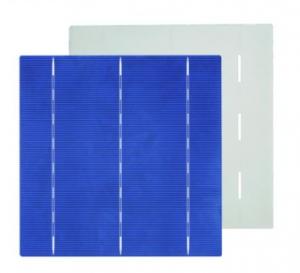260 Watt Doped Photovoltaic Poly Solar Panels
- Loading Port:
- China main port
- Payment Terms:
- TT or LC
- Min Order Qty:
- 1000 watt
- Supply Capability:
- 500000 watt/month
OKorder Service Pledge
OKorder Financial Service
You Might Also Like
Specification
Instruction
Quality and Safety
1. Rigorous quality control meets the highest international standards.
2. High-transmissivity low-iron tempered glass, strong aluminium frame.
3. Using UV-resistant silicon.
4. IS09001/14001/CE/TUV/UL
5.3w-300w mono & poly solar panel supply
Warranties
1. 10 years limited product warranty
2. 15 years at 90% of the minimal rated power output
3. 25 years at 80% of the minimal rated power output
Feature
1. High efficiency and High power.
2. Long-term electrical stability.
3. Lowest price and Fastest delivery.
4. Good quality and good service.
5.Bulk supply
6. Good Warranty
7.Big Sale
8.High quality
9.More than 35 years on the lifetime.
10 DHL/Fedex/UPS/TNT/EMS etc
Images
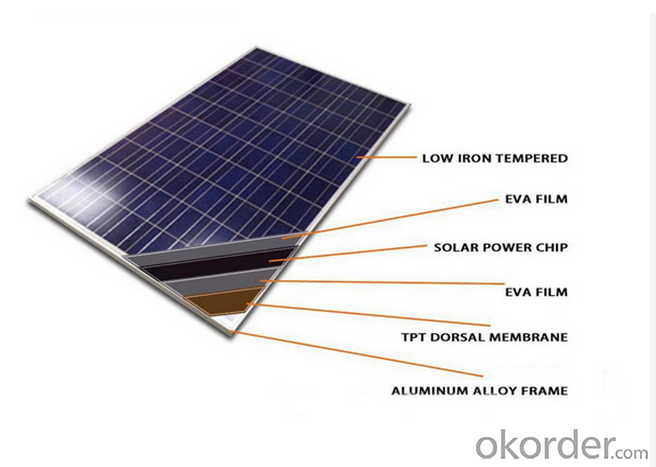
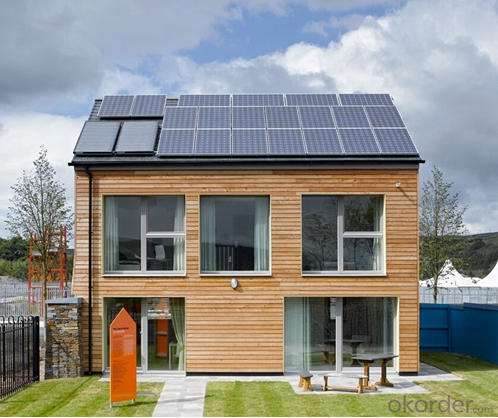
Specification
Model | SIM-100 |
Maximum Power at ST(Pmax)W | 100Wp |
Maximum Power Voltage(Vmp)V | 18.0V |
Maximum Power Current(Imp)A | 5.56A |
Open Circuit Voltage(Voc)V | 22.0V |
Short Circuit Current(Isc)A | 5.9A |
Cell Efficiency(%) | 17.0% |
Module Efficiency(%) | 15.37% |
Operating Temperature°C | -40°C to 85°C |
Maximum system voltage | 1000V(IEC)DC |
Power tolerance | -0.03 |
Temperature coefficients of Pmax | -0.45%/°C |
Temperature coefficients of Voc | -0.27%/°C |
Temperature coefficients of Isc | 0.05%/°C |
Weight(kg) | 7.4 |
Number of cell(pcs) | 4*9 |
FAQ
We have organized several common questions for our clients,may help you sincerely:
1). What’s price per watt?
A: It’s depends on the quantity, delivery date and payment terms of the order. We can talk further about the detail price issue. Our products is high quality with lower price level.
2). Can you tell me the parameter of your solar panels?
We have different series of cells with different power output, both from c-si to a-si. Please take our specification sheet for your reference.
3). How do you pack your products?
We have rich experience on how to pack the panels to make sure the safety on shipment when it arrives at the destination.
4). How long can we receive the product after purchase?
In the purchase of product within three working days, We will arrange the factory delivery as soon as possible. The perfect time of receiving is related to the state and position of customers. Commonly 7 to 10 working days can be served.
What’s a typical solar panel efficiency rating?
Most solar panels are around 11-15% efficient, The efficiency rating measures what percentage of sunlight hitting a panel gets turned into electricity that we can use. The higher the efficiency, the less surface area you’ll need in your solar panels. Although the average percentage may sound a little low, you can easily outfit a typical roof with enough power to cover your energy needs.
What are the most efficient solar panels?
In the lab, scientists have developed solar panels that are 40% efficient, or even slightly more than that. But there’s a big difference between the lab and the real world. Manufacturers haven’t yet figured out how to take these experiments and produce economically viable products. Thinking you should wait for new whiz-bang panels is one of the most common solar myths.
Should I choose the most efficient solar panels available?
High efficiency doesn’t mean better, it just means your panels use less space on your roof. Efficiency isn’t usually a critical concern unless you have an unusually small space for your solar panels. The most efficient solar panels cost a little more, so they’re a less common choice.
Factors that affect solar array efficiency include:
Panel Orientation
In the U.S., your roof ideally should face south, but a quality design can often compensate for other directions.
Roof and Panel Pitch
The “pitch” or tilt of your roof can affect the number of hours of sunlight you receive in an average day throughout the year. Large commercial systems have solar tracking systemsthat automatically follow the sun’s tilt through the day. These are expensive, however, and not typically used for residential solar installs.
Temperature
Some panels like it hot but most don’t. So, panels typically need to be installed a few inches above the roof with enough air flow to cool them down. Some photovoltaic panels are designed to be more efficient in hotter climates. Hot temperatures can reduce the efficiency of solar panels.
Shade
Basically, shade is the enemy of solar panel efficiency. With poor solar design, even a little shade on one panel can shut down energy production on all of your other panels (like a bad bulb in a string of Christmas lights). Before we design a system for your home, we’ll conduct a detailed shading analysis of your roof to reveal its patterns of shade and sunlight throughout the year. Then, our local installation partner conducts another detailed analysis to verify our findings. This is just one of many reasons to work with a highly experienced solar provider like.
For more on solar cell efficiency, go back to the Different Types of Solar Panels. Want to know more about what goes into a solar PV system? See our next page.
- Q: Can I buy solar cells easily online?
- Yes, you can.
- Q: Can solar cells be damaged by hail or other weather events?
- Yes, solar cells can be damaged by hail or other severe weather events. Hailstones can cause physical damage to the surface of the solar panels, leading to cracks or shattered glass. Additionally, strong winds, heavy rain, or extreme temperatures can also impact the performance and durability of solar cells. It is crucial to consider the weather conditions and take necessary precautions during the installation and maintenance of solar panels to minimize potential damage.
- Q: What information can I get from the Internet about the solar cell modules? Such as what it is? How it is made?
- Solar cell module is actually a group of collections of solar cells, manufacutured in the same factory. With the solar cell modules, it can provide powerful energy that can generate large power for our daily or industrial use based on what we need.
- Q: How do solar cells perform in extreme weather conditions?
- Solar cells generally perform well in extreme weather conditions, but their efficiency can be affected to some extent. In extremely hot conditions, solar cells may experience a decrease in efficiency due to increased thermal losses and a decrease in voltage output. Similarly, in extremely cold conditions, solar cells may also experience reduced efficiency due to decreased sunlight absorption and increased resistance. However, modern solar cell technologies are designed to withstand a wide range of weather conditions and have protective coatings to ensure their durability. Overall, while extreme weather conditions can have some impact on solar cell performance, they still remain a viable and reliable source of renewable energy.
- Q: What are the environmental impacts of solar cell production?
- The environmental impacts of solar cell production include the extraction of raw materials, such as silicon, which can contribute to deforestation and habitat destruction. The manufacturing process also requires a significant amount of energy, which may be sourced from fossil fuels and contribute to greenhouse gas emissions. Additionally, the disposal and recycling of solar panels can pose challenges, as some components contain harmful substances. However, it is important to note that the overall environmental benefits of solar energy, such as reduced greenhouse gas emissions and reliance on fossil fuels, outweigh these impacts.
- Q: What is the role of solar cells in powering data centers?
- Solar cells play a crucial role in powering data centers by harnessing the energy from sunlight and converting it into electricity. By installing solar panels on the roofs or surrounding areas of data centers, these cells generate clean and renewable energy to meet a portion of the center's power needs. This reduces reliance on traditional energy sources and helps data centers become more sustainable and environmentally friendly.
- Q: What is the impact of bird droppings on solar cell performance?
- Bird droppings have a negative impact on solar cell performance as they can obstruct sunlight and reduce the amount of energy produced by the cells. Additionally, the droppings can cause corrosion and damage to the surface of the cells, leading to further efficiency losses over time. Regular cleaning and maintenance are necessary to mitigate these effects and ensure optimal solar cell performance.
- Q: Can solar cells be used to power electric gates?
- Yes, solar cells can be used to power electric gates. Solar cells convert sunlight into electricity, which can be stored in batteries and used to power various devices, including electric gates. This allows for a sustainable and environmentally friendly solution to power electric gates without relying on traditional energy sources.
- Q: Can solar cells be used in educational institutions?
- Yes, solar cells can definitely be used in educational institutions. In fact, they can serve as valuable teaching tools for students to learn about renewable energy, sustainability, and the importance of reducing carbon footprint. By installing solar cells on the premises, educational institutions can also save on electricity costs and set an example for the community by embracing clean energy solutions.
- Q: Can solar cells be used for powering hotels?
- Yes, solar cells can be used for powering hotels. Solar cells, also known as photovoltaic cells, convert sunlight into electricity, providing a sustainable and renewable energy source. By installing solar panels on the roofs or in open spaces around hotels, they can generate clean energy to meet a portion or even the entire electricity demand of the establishment, reducing reliance on traditional power sources and resulting in cost savings.
Send your message to us
260 Watt Doped Photovoltaic Poly Solar Panels
- Loading Port:
- China main port
- Payment Terms:
- TT or LC
- Min Order Qty:
- 1000 watt
- Supply Capability:
- 500000 watt/month
OKorder Service Pledge
OKorder Financial Service
Similar products
Hot products
Hot Searches
Related keywords
